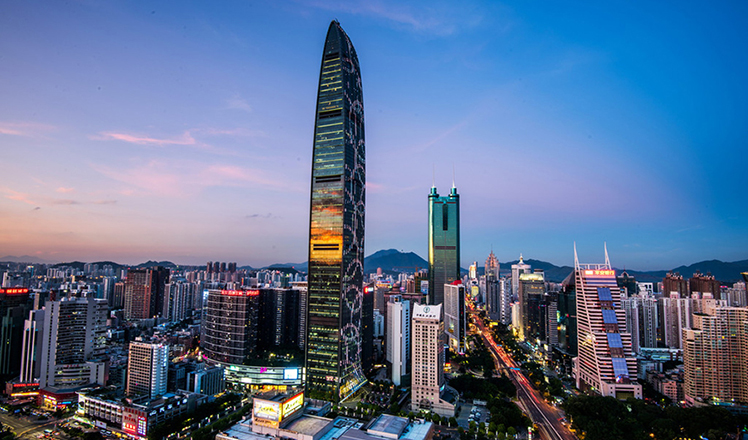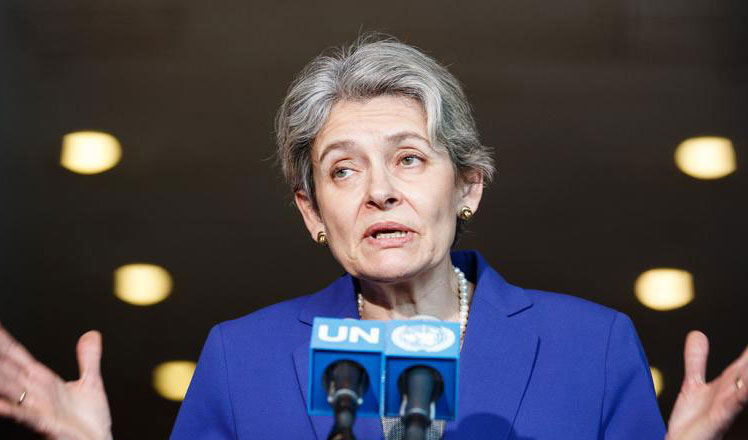State Councilor Yang Jiechi delivers speech at the French Institute of International Relations
Updated: 2016-04-15 07:46
(chinadaily.com.cn)
|
||||||||
China's Development and China-Europe Cooperation: Sources of Positive Energy for the World
Speech by H.E. Yang Jiechi
State Councilor of the People's Republic of China
At the French Institute of International Relations
14 April 2016
Mr. Thierry de Montbrial, Executive Chairman of the IFRI,
Ladies and Gentlemen,
Dear Friends,
Good afternoon. I am delighted to come back to this magnificent city for this year's China-France strategic dialogue. Yesterday, shortly after I arrived in Paris, I had meetings with President Hollande and Foreign Minister Ayrault. This morning, I had a candid, in-depth and productive discussion with Mr. Jacques Audibert, President Hollande's diplomatic advisor. We reached broad agreement on bilateral ties and major regional and international issues.
The French Institute of International Relations is a leading think tank in France and in Europe as a whole. This institute and all of you present today have made important contribution to the mutual understanding between China and Europe in general and between China and France in particular. Let me salute you and thank you for your worthy efforts.
I last visited the IFRI six years ago, at a time of deepening global financial crisis and worsening debt problem in this part of the world. The world economy was on the brink of a deep recession. Against that backdrop, the Chinese economy was among the first to turn around, and together, China and Europe sent a powerful message of jointly tiding over the difficult times and pledged to strengthen strategic cooperation based on deepening trust, equality and mutual benefit.
Now, six years on, the world economy is yet to emerge from the crisis. It still faces daunting challenges for strong growth. While the Chinese economy is in a new normal of adjustment and reform, the European economy has turned the corner and entered a new phase of steady growth. As China and Europe become increasingly interdependent, we also face a growing number of common challenges.
A friend in need is a friend indeed. It is exactly in the course of jointly confronting the financial crisis and global challenges that good chemistry occurs between China and Europe. Increasing communication has brought us closer to each other. More and more Europeans have developed a keen interest in China. They want to know more about China. And they are ready to listen to China.
At the moment, how the Chinese economy is doing is a topic of great interest, and this is what I have to say to you. There are many around the world who are optimistic about the Chinese economy. They believe that the new normal in the Chinese economy should be viewed in an objective light and that other countries should readily get accustomed to it. But there are others who have misunderstanding and even bias about the Chinese economy, worrying that it might make a hard landing or even drag down the world economy.
What is the real picture then? Let me share with you one latest figure released by China's National Bureau of Statistics early this month. China's PMI in the month of March rose above 50%, the departure point between expansion and contraction. And in recent months, investment in fixed assets has rebounded, the housing market has picked up, and the economy as a whole has regained its momentum of growth.
The Chinese economy, however, still faces a downward pressure. What's more, transformation and upgrading are invariably accompanied by some "growing pains". We will not evade those problems or deny their existence. Rather, we will rise to the challenges with every confidence. People with an objective and comprehensive perspective will see that as an anchor and a source of growth for the world economy, the Chinese economy will continue to inject positive energy to the global economic growth.
Such positive energy comes from China's enormous contribution to the world economy. China's GDP grew by 6.9% last year. The moderated growth rate is actually the intended result of China's structural adjustment. The old growth model would certainly have secured China a higher growth rate. But we now value quality as much as speed, if not more. Even a growth rate of 6.9% still places the Chinese economy at the forefront of major economies and represents the biggest increment in the world, equivalent to the GDP of a middle-income country. According to the IMF, China will be contributing 30% to global economic growth up to 2020. And it is worth noting that China is becoming a major contributor to global consumption and investment. For three years in a row, China leads the world in the number of outbound tourists as well as the amount of money they spend. Last year, the value of wine China imported was up 34% year-on-year, reaching a record high of two billion US dollars. A significant amount of that was produced here in France. In the next five years, China will import goods worth over 10 trillion US dollars and make outbound investment of over 600 billion US dollars. Later this year, China will work with other parties to host a successful G20 Summit in the city of Hangzhou. We hope this Summit will help improve global economic and financial governance. Is China a liability or an asset for a slowly recovering global economy? The answer is all too clear.
Such positive energy also comes from the good progress in China's deepening reform. Guided by a vision of innovative, coordinated, green, open and shared development, China is steadily advancing its own structural reform in a bid to lead by example in the broader structural reform of the world economy. Such reform has proved effective. Consumption has overtaken investment as the key driver of the Chinese economy. The share of the services sector in GDP has exceeded 50%. And a more telling sign is that household income and spending are growing faster than GDP. This is very much in line with China's ultimate goal of development for better livelihood and seen as a new yardstick for China's economic performance. Inspired by the government's call of "mass entrepreneurship and innovation", 12,000 new businesses get registered every day. Many of them are in such "new economy" sectors as Internet Plus, the Internet of Things and e-commerce. In the coming five years, 50 million new jobs will be added, ensuring adequate employment despite a moderated growth rate. The supply-side structural reform that China is pushing forward will further unlock growth potential. I'll just give you an example. In China, a country with near one fifth of the world's population, the number of civilian airports is only one twelfth of the world's total. This illustrates the immense room for growth in China's infrastructure and services sectors. Some China observers have pointed out that the traditional way of economic analysis, with its excess focus on data in the industry sector, can no longer capture the whole picture of a Chinese economy in transition with structural changes. I think they have made a point here.
Such positive energy also comes from China's resolve and seriousness about opening up further. When it comes to opening-up, China will not shut its door again or backtrack. Because we are keenly aware that retrogression or departure from the opening-up policy will lead us nowhere. China is striving for new progress in its all-round opening-up endeavor. It will widen market access and work on institutional improvement. The Chinese government has taken far-reaching measures to streamline administration and delegate power in the past couple of years. The purpose is to let the market play a decisive role in resource allocation. China has started its new round of reform and opening-up with a pilot free trade zone in Shanghai. New measures introduced in this pilot project, most notably the three lists for government administrative approval, i.e. negative list, accountability list and power list, have gone a long way towards trade facilitation. Such new measures will be rolled out to China's central and western regions. We will open wider the services and financial sectors and increase market access in an orderly manner. We are committed to facilitating exchanges and cooperation between foreign companies, institutions and individuals with their Chinese counterparts. We will try to do a better job in all these areas. French companies were among the first to enter the Chinese market following China's launch of its reform and opening-up program. Those French companies have expanded their presence in China in tandem with China's deepening reform and opening-up. Just to name a few of them. French nuclear companies like EDF and AREVA have been running their business in China for over 30 years. They have established themselves in the world's largest market for nuclear power. But more than that, their success has led to the thriving business of a large number of SMEs in France. The Taishan Nuclear Power Plant, which is still under construction, is expected to be completed next year and become the world's first nuclear plant using third generation technology. PSA Peugeot Citroën has seen its market share in China soaring and performance markedly improved since China's Dongfeng Motor Group acquired its stake in 2014. Last year, the company turned around to make profits again. These are just a few examples of the kind of cooperation benefiting our two countries.
In short, while a growing China has benefited from the world, it will ensure that its own development benefits the world as well. Benefits of development and opportunities for cooperation are what China has to offer to the world.
Ladies and Gentlemen,
Dear Friends,
As China continues to grow and gets more integrated into the world, the international community is following with great interest not only how its economy is doing but also where its diplomacy is heading. This is especially true for the past few years. China has been more proactive on the diplomatic front to develop friendly ties with other countries. It has also become more active in providing better and more public goods to the world. Such efforts have been well received by many in the world. Nevertheless, there is still speculation about the so-called China's strategic intention. As a matter of fact, China's strategic intention cannot be more clear-cut. What we seek are the fulfilment of the two centenary goals (i.e. to complete the building of a moderately prosperous society in all respects and double China's 2010 GDP and per capita income by the time the CPC celebrates its centenary in 2021; and to build China into a modern socialist country that is prosperous, strong, democratic, culturally advanced and harmonious by the time the People's Republic of China celebrates its centenary in 2049) and the realization of the Chinese dream of great national rejuvenation. At the same time, we will promote peace and development of the world and work with other countries for a community of shared future for all mankind. China's development will only mean a greater force for peace and more positive energy for the world.
We are committed to a path of peaceful development. We are determined to blaze a new path of peaceful development of a major country in line with our national interests as well as the call of the times for peace, development, cooperation and mutual benefits. We strive to develop ourselves by upholding world peace and better safeguard world peace by building up our own strength. Such a path is inspired by China's history and culture and the fine diplomatic tradition of New China. It is consistent with China's national conditions as well as the trend of the world. We know full well that in an increasingly globalized world of deepening interdependence among countries, only through peaceful development can China realize its ambitious goal of national rejuvenation and contribute more to the world. As we pursue peaceful development ourselves, we call on other countries to do likewise. Our commitment to peaceful development does not mean that we can allow our legitimate rights and interests or core national interests to be sacrificed.
We are committed to win-win cooperation. China advocates a new type of international relationship centered on win-win cooperation in which countries seek to advance common development through joint efforts. True development should be development for all, and sound development should be sustainable. The international community should find a path of fair, open, comprehensive and innovative development and work for common development. To that end, China has proposed a Silk Road Economic Belt and a 21st Century Maritime Silk Road. Under this initiative, we intend to promote international industrial capacity cooperation, deepen all-round, win-win cooperation with other countries in economy, trade, investment, industry and infrastructure, help the countries involved build capacity for self-development, and create more development opportunities for more countries. We have signed inter-governmental agreements for cooperation on the Belt and Road with over 30 countries, including some European countries. China and France were the first to cooperate in third-country markets, setting up a new model of North-South cooperation. Chinese and French companies are exploring and conducting three-way cooperation in various forms in such African countries as Nigeria, Uganda, Mozambique and Guinea. The Hinkley Point in the UK, a joint project that will involve Chinese and French companies, is another testament to the broad prospect and market space for tripartite cooperation.
We are committed to building various partnerships with all countries. In today's world, countries have intertwined interests and would rise and fall together. As such, we need to build partnerships with rich substance and in diverse forms at regional and international levels. These partnerships should be equal in nature, meaning that countries will enjoy equal rights and share same obligations with no one playing a more dominant or superior role. They should be peaceful and not targeted against any hypothetical enemy or third party. And they should be inclusive, including not just those who share the same ideal and follow the same path but also those who seek common ground while shelving differences. China has established different forms of partnerships with over 80 countries, regions or regional organizations in an effort to blaze a new trail for state-to-state relations featuring dialogue and partnership rather than confrontation or alliance.
We are committed to resolving differences through peaceful means. Be it the Middle East and other international hotspots, or issues concerning China's territory and maritime rights and interests, China has stayed committed to solving disputes through dialogue and negotiation. Together with European countries and other parties, we have made possible the conclusion of the comprehensive agreement on the Iranian nuclear issue. We have also been actively engaged in the pursuit of a political settlement of the Syrian issue. Dialogue and negotiation have proven the best way toward the most lasting solution at the lowest cost and minimal "after effects".
On the Korean nuclear issue, China is committed to achieving the denuclearization of the Peninsula, upholding peace and stability on the Peninsula, and resolving the relevant issues through dialogue and negotiation. Given the intricate and sensitive situation on the Peninsula, parties should implement the Security Council Resolutions in their entirety, avoid saying or doing anything that might escalate tensions, and refrain from taking any moves that might undermine the security interests of other countries and the strategic balance in the region. China will not permit war or chaos to erupt on the Peninsula or allow some countries to hurt its strategic interests under the excuse of enforcing sanctions. We have put forward the approach of advancing in parallel the denuclearization of the Peninsula and replacement of the armistice treaty with a peace agreement. This proposal reflects China's commitment to building on the consensus accumulated during the Six-Party Talks, restoring trust among the parties, restarting dialogue and communication, and bringing the Korean nuclear issue under control and back to the track of negotiation.
I would also like to say a few words about the South China Sea. The South China Sea is a maritime lifeline on which Asia-Pacific countries rely for their survival and development. No country cares more than China about peace, tranquility and freedom of navigation in these waters. On this issue, we must not be misled by ill-intentioned sensationalization; rather, we need to judge the matter on its own merits.
China was the first country to discover, exploit and exercise jurisdiction over the Nansha Islands. After the end of World War II, Japan returned the territories it had stolen from China in accordance with a series of international documents, including the Cairo Declaration and the Potsdam Proclamation, and China recovered in accordance with law the Nansha Islands occupied by Japan. Up till the 1970s, the Nansha Islands had been recognized in various ways, either explicitly or by tacit agreement, as China's territory by the littoral countries of the South China Sea and the rest of the international community. It was only when oil and gas reserves were discovered in the South China Sea that some countries started to encroach upon and occupy islands and reefs of China's Nansha Islands. They conducted massive construction there, built various facilities, and even deployed artillery positions, missiles and other offensive weaponry. So when it comes to the South China Sea, the biggest victim is no other than China.
China's construction activities on islands and reefs under its administration do not violate international law. China's sovereignty over the Nansha Islands and their adjacent waters has been formed in the course of history. It is fully backed by legal evidence. We have deployed on the islands and reefs some necessary facilities of a defensive nature. This is the legitimate right China is entitled to as a sovereign state under international law. Other countries have no right to intervene arbitrarily or make unwarranted comments. Most of our facilities there are built to safeguard the freedom of navigation enjoyed by countries in accordance with international law and to enable China to better fulfill its due responsibility as the largest littoral country of the South China Sea.
China maintains that the disputes in question should be resolved through negotiation and consultation between the states directly concerned. This approach is in keeping with international law and basic norms governing international relations. The Philippines unilaterally initiated the South China Sea arbitration. By not accepting or participating in it, China is acting in accordance with law. The arbitration case boils down to territorial sovereignty and maritime delimitation. Article 298 of UNCLOS stipulates that States Parties have the right to make declarations that exclude the application of compulsory procedures in respect of maritime delimitation and other matters. The Chinese government made such a declaration in accordance with law back in 2006. In fact, similar declarations have been made by many other countries. We call on that certain country to give up wishful thinking and stop making political provocation under the guise of law or undermining international law in the name of upholding it. We urge it to return to the negotiating table as soon as possible, implement in good faith the Declaration on the Conduct of Parties in the South China Sea (DOC) jointly signed by China and ASEAN countries, seek peaceful solution to the disputes through negotiation and consultation on the basis of respecting historical facts and international law, and work with us to maintain peace and stability in the South China Sea.
Despite the disputes between China and several ASEAN countries over territory and maritime rights and interests, China-ASEAN cooperation has not slowed down. On the contrary, cooperation has picked up speed. Leaders of China and ASEAN countries have close high-level exchanges every year. Last year alone saw visits exchanged between China's top leader with his counterparts in Vietnam, Indonesia and Singapore. Heads of state from Laos, Cambodia, Myanmar and Timor Leste visited China for events commemorating the 70th anniversary of the victory of the Chinese People's War of Resistance against Japanese Aggression and the World Anti-Fascist War. We have extensive and in-depth people-to-people and cultural exchanges with ASEAN countries. Last year, mutual visits between China and ASEAN countries hit a record high of more than 23 million. We have conducted pragmatic and productive cooperation in all fields. We have launched high-speed railway and other connectivity projects. China's cooperation with Malaysia, Singapore, Indonesia and Vietnam on production capacity and financial services are making steady progress. Negotiations on an upgraded China-ASEAN FTA have successfully concluded. Last year, China and ASEAN held for the first time the Defence Ministers' Informal Meeting and the Ministerial Dialogue on Law Enforcement and Security Cooperation. Recently, we successfully hosted the inaugural Lancang-Mekong Cooperation Leaders' Meeting, adding a new dimension to China-ASEAN cooperation. This year marks the 25th anniversary of China-ASEAN dialogue relations. China will remain committed to the principle of amity, sincerity, mutual benefit and inclusiveness, deepen friendly cooperation with ASEAN countries and make fresh contribution to prosperity and stability in Asia and the world at large.
Ladies and Gentlemen,
Dear Friends,
Whatever change may take place in the international landscape, Europe remains an important force on the international arena. We can see that despite the difficulties, challenges and distractions it faces, Europe is making efforts to stay focused and press ahead with its integration process. Its economy has sustained the momentum of recovery. China has full confidence in the future of Europe. China-Europe relationship is always one of our diplomatic priorities. We firmly support European integration and support a united, stable and prosperous EU in playing a still bigger role in international affairs.
This year marks the beginning of the fifth decade of China-Europe relations. Looking back at the past four decades, we see a sea change in both Europe and China, two major forces in the world. The European Coal and Steel Community has now evolved into a union, covering 500 million people of 28 countries, while China, once a weak and poor country, has experienced exciting development since it launched its reform and opening-up program. Over the past 40-odd years, China-Europe relations have come a long way. Equality, mutual benefit and win-win cooperation hold the key to the stable and healthy growth of China-Europe relations. Forty years ago, political relations between us were virtually non-existent and engagement was difficult in the early days due to ideological differences. Forty years on, China and Europe have become comprehensive strategic partners who enjoy frequent high-level visits and conduct wide-ranging conversations in more than 70 dialogue and consultation mechanisms spanning different areas and at different levels. Forty years ago, two-way trade between China and Europe was less than three billion US dollars. Forty years on, the figure grew 200-fold to nearly 600 billion US dollars, which means the annual trade volume in the past is now easily done in just two days. The EU has remained China's top trading partner for 12 years on end, while China has remained the EU's second largest trading partner for 13 years in a row. Forty years ago, few visits were exchanged between our people. China in the eyes of most Europeans was merely a remote Oriental legend. Forty years on, two-way personnel exchanges between China and the 28 EU member states top 6.41 million. Steady progress is being made in facilitating the travel of our people, further cementing popular support for China-Europe relations.
Today, China-EU relations are blessed with a historic opportunity for more rapid growth. In 2014, during his visit to the EU headquarters, President Xi Jinping called on China and Europe to forge partnerships for peace, growth, reform and civilization. His vision gives a new strategic direction to the development of China-EU relations. At the end of last month, President Xi paid a successful visit to the Czech Republic. That was the first time for President Xi to visit a central and eastern European country in his capacity as Chinese president. His visit injected fresh impetus to China's cooperation with Central and Eastern European countries (CEEC), and sent a clear message of China's commitment to Europe and its readiness to promote better and faster development of its relations with Europe. Here, I would like to make the following observations on how to advance China-Europe relations going forward:
First, we need to cement the basis for political mutual trust. China and Europe are different in development stage, ideology and social system. For our relations to grow steadily and our cooperation to be sustainable, we must trust and respect each other. The two sides should view and promote cooperation with a long-term and strategic perspective in order to expand common interests. We must not allow individual incidents at particular times to affect our overall cooperation. At the invitation of President Xi Jinping, President Hollande and other European leaders will join leaders from other countries at the G20 Hangzhou Summit. This year, we will have some important events such as the 18th China-EU Summit and the 16+1 (CEEC-China) Summit in Riga, during which Premier Li Keqiang will have in-depth discussions with leaders of the EU and European countries on enhancing cooperation. We must use these high-level exchanges and dialogue mechanisms at various levels to increase communication and coordination on issues of respective interest and deepen our political mutual trust.
Second, we must continue to enhance practical cooperation. Combined, China and Europe account for one third of the world economy. Sound economic development in China and Europe is crucial for a steady recovery of the world economy. The increasingly grave and complex global economic situation requires greater commitment to openness and cooperation and more firm opposition to trade protectionism of all forms. We should speed up negotiations on the China-EU investment agreement and launch at an early date joint feasibility study on a China-Europe FTA to tap into the potential of bilateral trade and investment cooperation. We need to explore synergy between China's "Belt and Road" Initiative, its international production capacity cooperation programs and Europe's development strategies. We should step up efforts to set up a joint investment fund and bring into early operation such cooperation projects as high-speed railway and nuclear energy. We should deepen financial cooperation and increase communication on financial and monetary policies, scale up the size of settlement in local currencies and deepen cooperation within the framework of the Asian Infrastructure Investment Bank (AIIB) and the European Bank for Reconstruction and Development (EBRD). We should enhance China's multi-tiered cooperation with EU institutions, EU member states and sub-regions in Europe to enable China-EU relations to grow on a solid basis and in a balanced way.
Third, we should strengthen cooperation on global governance. As Europe is facing a serious terrorist threat, China is ready for more counter-terrorism communication with Europe and closer cooperation on intelligence sharing. Last year, thanks to the joint efforts of China and Europe, especially France, the Paris Agreement was reached, ushering in a new process of a global response to climate change. China will work with Europe to push for progress in implementing the Paris Agreement and for that matter, progress in global climate change cooperation. As important participants in global governance, China and Europe should deepen cooperation in upholding world peace, improving economic governance, sustainable development, cyber security and anti-corruption. On a particular note, we should strengthen coordination and cooperation on this year's G20 Summit in Hangzhou to ensure its success and play a positive role in promoting global growth.
Fourth, we must deepen multi-dimensional people-to-people exchanges. Both China and Europe are important forces for the development of human civilization. China is ready to work with Europe under the framework of the high-level people-to-people dialogue to make an overall plan for cooperation in science and technology, education, culture, health, tourism and sports and exchanges between youth and women. We should strive for solid progress on key projects and develop a number of flagship programs. This year, we shall focus our efforts on the high-level people-to-people dialogues between China and Europe, between China and France and between China and the UK, the China-Germany Year of Youth Exchange and the Year of China-CEEC People-to-People Exchange.
Ladies and Gentlemen,
Dear Friends,
France has a unique influence in the world. It is a champion for the development of the EU. It is also the first major western country to officially establish diplomatic ties with New China. Over the years, our two countries, under the principle of independence and mutual respect, have achieved a high level of political mutual trust and carried out quality and fruitful win-win cooperation, setting a paradigm for the broader China-Europe relations. The strategic importance, great relevance and global influence of our bilateral ties have expanded and enriched China-Europe relations.
In 2014, President Xi Jinping paid a successful visit to France, ushering in a new era of close and enduring comprehensive strategic partnership between China and France. Our Presidents and Premiers have had several mutual visits, and our cooperation in civil nuclear energy, aviation, finance and people-to-people exchange has continued to break new ground. France is now China's important investment destination in Europe, and a popular destination for Chinese tourists, as evidenced by the new record numbers of Chinese visitors in France. We have also maintained good and productive consultation on major international affairs, like global governance, climate change, counter-terrorism, and the Iranian nuclear issue.
Ladies and Gentlemen,
Dear Friends,
In the building of the four partnerships between China and the EU, China-France relationship will have an important and special place. China will work with France and other European countries to deepen mutual understanding, increase cooperation and improve the all-dimensional, multi-tiered and wide-ranging patterns of dialogue and cooperation. This way, we will be able to inject a lasting driving force to our comprehensive strategic partnership and contribute more positive energy to world peace and prosperity!
Thank you.

 8 good books from London Book Fair you can't miss
8 good books from London Book Fair you can't miss
 Kobe Bryant's accomplishments by the numbers
Kobe Bryant's accomplishments by the numbers
 Top 10 Chinese cities with biggest surge in home prices
Top 10 Chinese cities with biggest surge in home prices
 Beijing Hutongs revived in watercolors
Beijing Hutongs revived in watercolors
 China's couple lose same-sex marriage case
China's couple lose same-sex marriage case
 Thank you Kobe, say Chinese fans in countdown to retirement
Thank you Kobe, say Chinese fans in countdown to retirement
 3D printers from China at New York show
3D printers from China at New York show
 UN takes historic step to open selection of new UN chief
UN takes historic step to open selection of new UN chief
Most Viewed
Editor's Picks

|

|

|

|

|

|
Today's Top News
Duke alumni visit Chinese Embassy
Marriott unlikely to top Anbang offer for Starwood: Observers
Chinese biopharma debuts on Nasdaq
What ends Jeb Bush's White House hopes
Investigation for Nicolas's campaign
Will US-ASEAN meeting be good for region?
Accentuate the positive in Sino-US relations
Dangerous games on peninsula will have no winner
US Weekly

|

|







